The Two Guys’ Bow Tie Co. – Wooden Bowtie


DEAL
EPISODE SUMMARY
🕓 Air Date: October 9, 2015
Asking For:
$150,000 for 10%
Investor:
Daymond John
Deal:
$150,000 for 17.5% equity + 10% royalty until $150,000 investment is recouped
PRODUCT SUMMARY
Two Guys Bow Tie Company offers handcrafted wooden bow ties, lapels, pockets, and unique fedoras made from exotic hardwoods, providing a distinctive and customizable accessory for various occasions.
WATCH HERE
IN A RUSH?
Click these to jump to the section you want to read.
Background Story
Founded by Adam Teague and Tim Paslay in Tulsa, Oklahoma, the Two Guys Bow Tie Company started with a vision to provide unique accessories that stand out. Recognizing the need to differentiate oneself in social events, especially in situations like weddings, the founders came up with the idea of wooden bow ties.
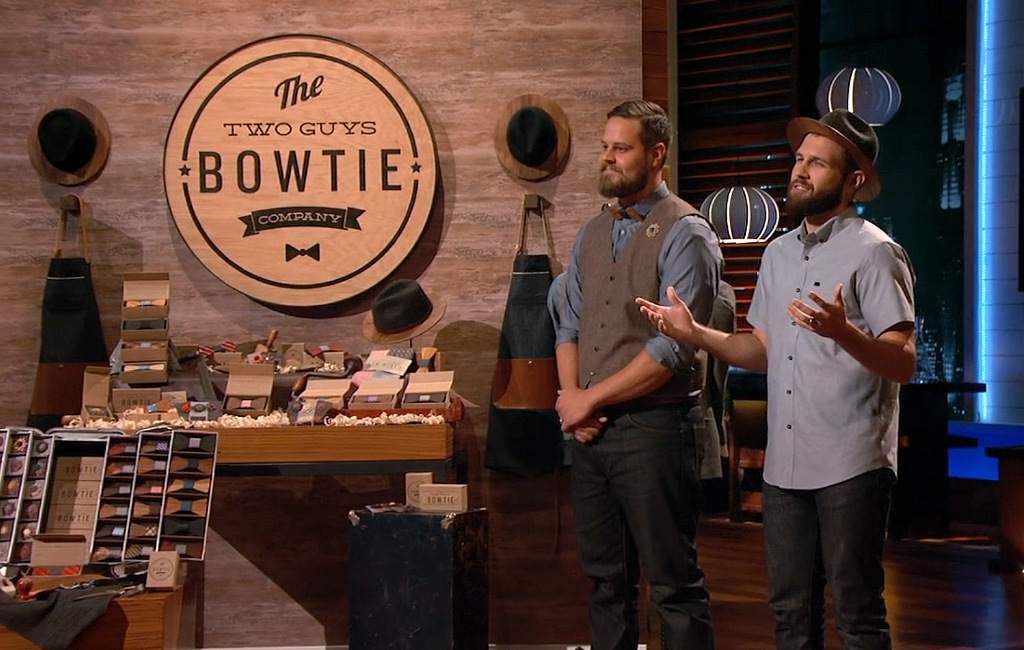
They emphasize the value of individuality in style and focus on crafting accessories that make a statement, using old-school craftsmanship and modern designs. Their commitment to quality is reflected in the use of exotic hardwoods like Peruvian walnut and African zebra wood, resulting in accessories that age gracefully over time.
The Product
Two Guys Bow Tie Company’s flagship product is the handcrafted wooden bow tie, retailing from $45 to $95. The company has expanded its product line to include lapels, pockets, and unique fedoras. The core bow ties cost approximately $7.50 to produce.
The accessories are made from a variety of exotic hardwoods, ensuring durability and a distinctive look. The company can customize the front of the bow ties, allowing customers to express their individuality. With the ability to process about 1,000 bow ties a week, Two Guys Bow Tie Company prides itself on efficient logistics, ensuring quick turnaround times for custom orders.
The majority of sales, around 75%, come through the company’s website. The founders have strategically targeted tastemakers and style influencers for promotion. They’ve also tapped into the NBA market, with NBA player Mike Conley wearing their bow tie during the playoffs, leading to increased visibility and sales.
The company’s impressive logistics, with a satisfaction rate reflected in fewer than 30 returns for defects out of over 25,000 pieces sold, speaks to the quality of their products.
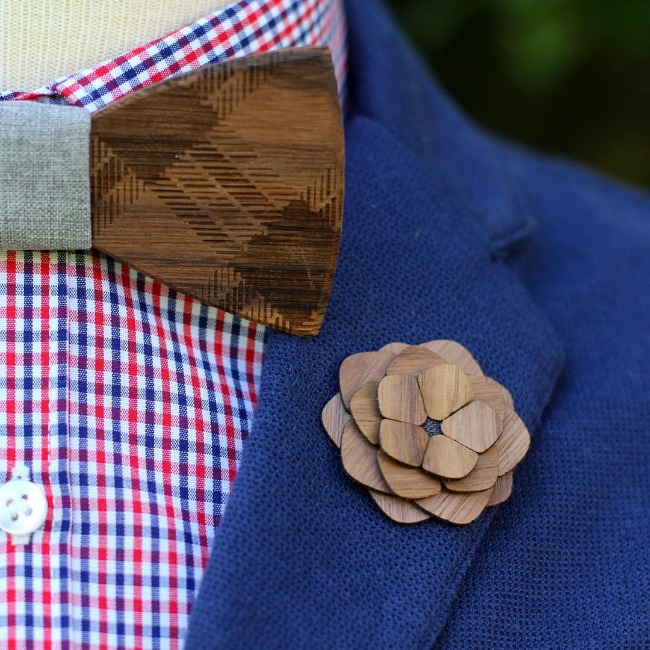
How It Went
The company’s position before Shark Tank
In the pitch, Two Guys Bow Tie Company revealed impressive financials, generating $407,000 in sales the previous year and nearing $1 million in total revenue over 2.5 years. The company has built a reputation for customization, efficiently processing custom orders and shipping them the next day. With the ability to produce about 1,000 bow ties a week, their production capacity is well-aligned with demand.
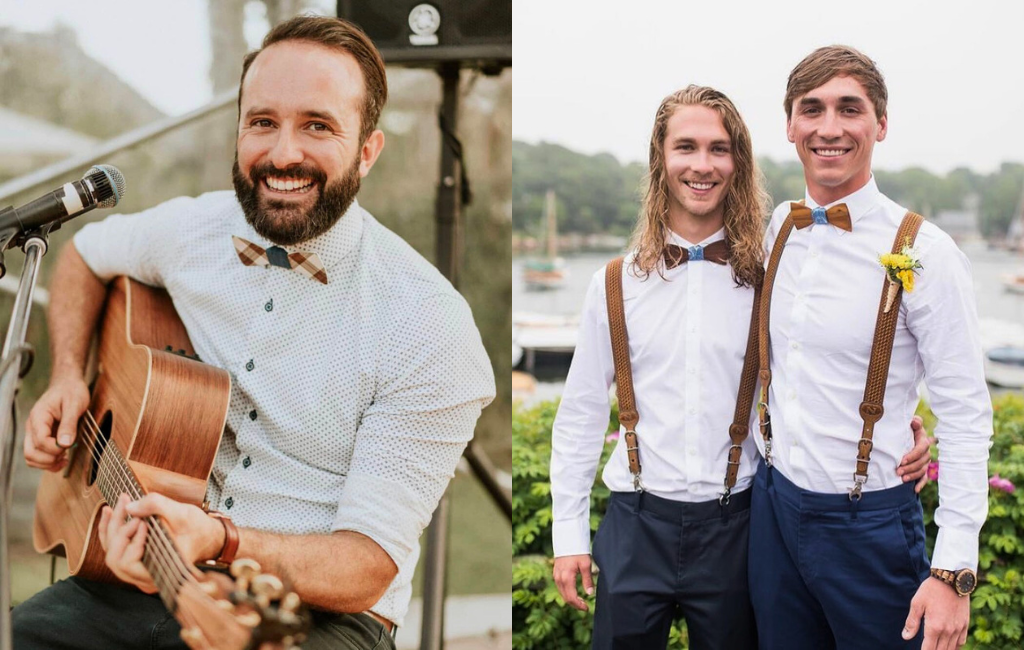
The company’s sales are predominantly through their website, providing them with a favorable profit margin. They highlighted partnerships with NBA players like Mike Conley, leveraging the influence of celebrities to boost brand recognition and drive sales. Notably, they have established a solid logistics system, resulting in minimal returns for defective products.
The Negotiations:
The negotiation phase saw two Sharks making offers. Kevin O’Leary expressed interest in incorporating Two Guys Bow Tie Company into his “Platform of Love,” a collection of businesses related to weddings and special events. He offered $150,000 for 15% equity.
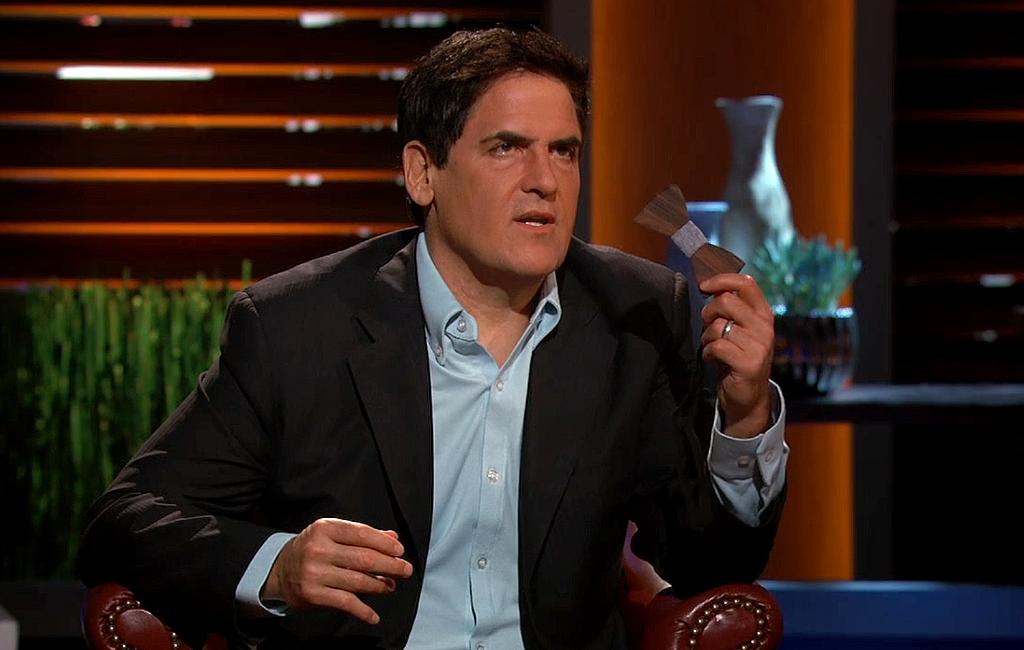
Troy Carter, another Shark, proposed a joint offer with Daymond John, suggesting a partnership between the entrepreneurs and the Sharks. Daymond John, willing to work with Troy, increased his equity ask to 30%, but the entrepreneurs negotiated it down to 20%. Daymond John made a competitive offer of $150,000 for 10% equity and a 10% royalty until the investment was recouped. Kevin O’Leary dropped his equity ask to 10%, reduced the royalty to 7.5%, and included the product on his “Platform of Love.”
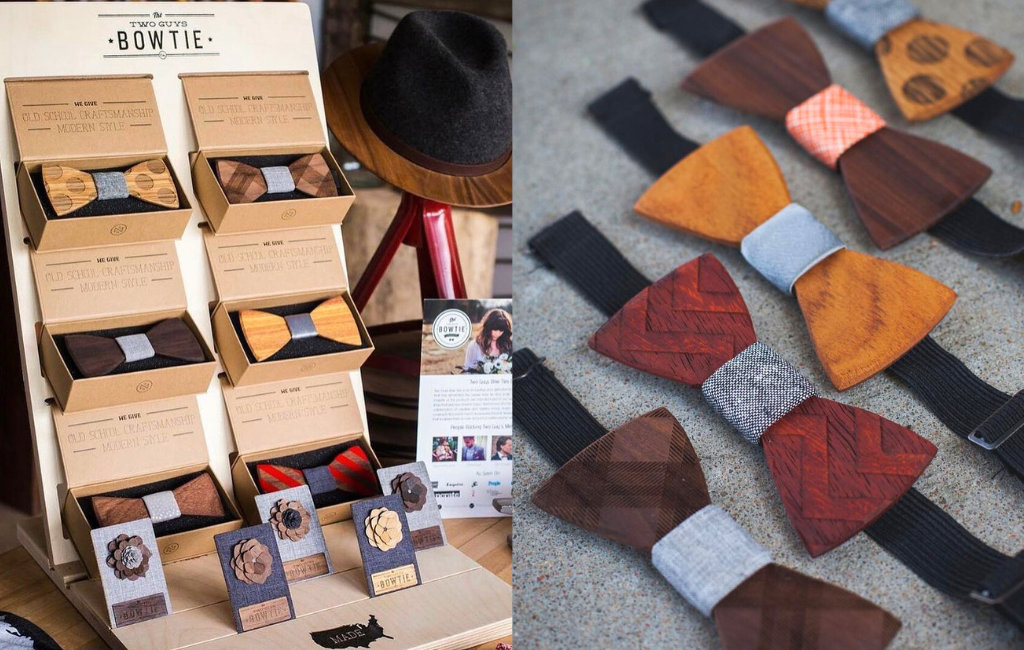
Ultimately, the founders accepted Daymond John’s offer of $150,000 for 17.5% equity and a 10% royalty until the investment was recouped. The negotiation showcased the founders’ strategic thinking and their ability to secure a deal that met their business goals.







